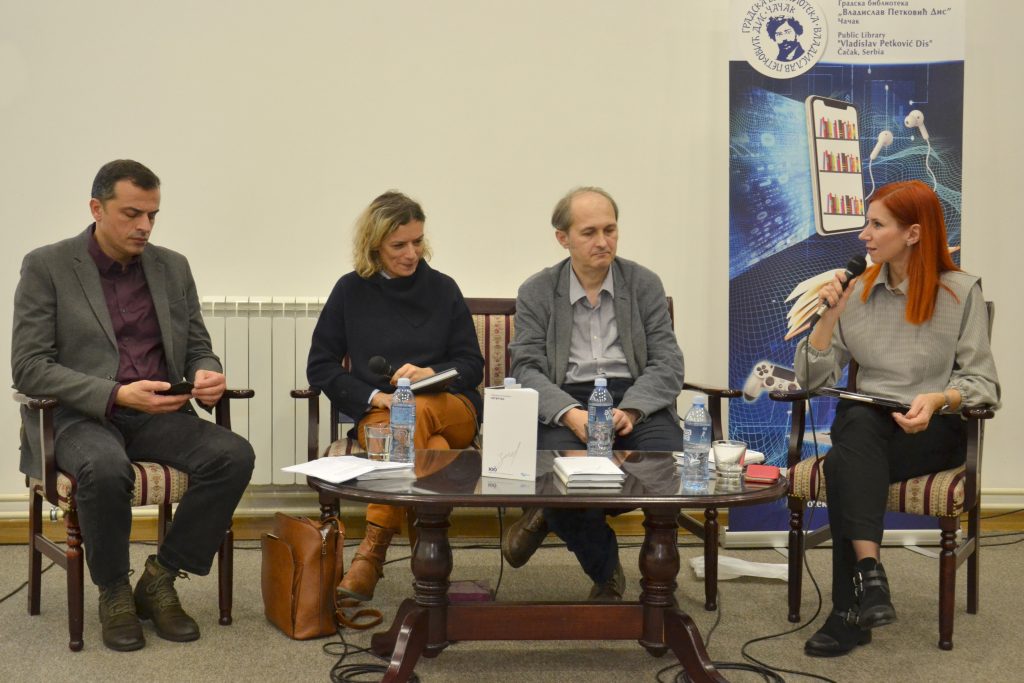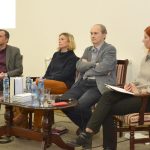On the occasion of the 15th anniversary of the collection, the “Vladislav Petković Dis” City Library in Čačak and the Novi Sad City Library held roundtable discussions dedicated to “this major international cultural, literary and promotional project of Slavic literatures”.
In Čačak, Mladen Vesković, Editor-in-Chief of the collection, Gojko Božović, Serbian publisher, and Tamara Krstić, literary critic and editor at Radio Belgrade, spoke about the collection. In Novi Sad, alongside Mladen Vesković and Gojko Božović, the collection was presented by Prof. Dr. Vladislava Gordić Petković from the University of Novi Sad and translator from Slovak Dr. Zdenka Valent Belić.
Mladen Vesković explained that this literary series is published on the initiative and under the auspices of the Forum of Slavic Cultures and spoke about the origins and mission of this institution. He also explained the concept of the 100 Slavic Novels collection, the first and, in his opinion, the most visible project of the Forum. “The aim of the project was to learn more about the Slavic world by encouraging mutual translation and to promote the Slavic cultural space by presenting the best literary achievements. So far, 92 titles have been published in seven languages, 30 of them in Serbian. One of our future tasks is to expand the lists and to carry out a second round to extend the life of this representative literary project,” he said.
Gojko Božović recalled the early days of the collection’s publication, a time of “cultural non-recognition”, when any translation into Serbian from any Slavic language – except Russian – was almost an “incident”. “After the fall of the Berlin Wall, all Slavic countries experienced very dramatic changes, new social, political and economic circumstances, disintegration, dissolution and finally transition. It was necessary to re-establish the broken cultural and literary tiesbetween the Slavic countries and to deepen the existing ones. One of the ways to do this was to create such a representative collection, but also to create a new generation of translators from Slavic languages,” said Božović.
Tamara Krstić shared some of her impressions of the collection: ” The 100 Slavic Novels series draws on literary heritage and you can really see the dialogue between different civilisations and eras. The novels in this edition deal with eternal, universal themes in literature that touch us all: loneliness, anxiety, alienation, finding a place under the sun, examining human existence, etc.”
At the end, the participants exchanged views on possible ways of popularising the collection, as well as Slavic studies in general. They agreed on the need for support from the relevant institutions, more frequent visits by foreign writers and translators, interest from the media and help from librarians, who are often in direct contact with readers.






